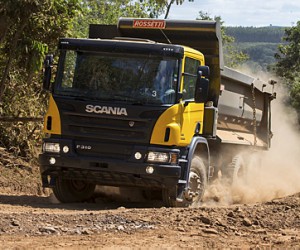Local and global investors who are concerned about the long-term security of mining investment profiles need policy certainty, streamlined processes and mining consolidation to ease investment fears.
Director of New Africa Mining Fund, Neil Gardyne, believes government-mining processes in SA need to be streamlined because they take too long and as a result discourage investment.
“There is a worry out there that mining investment takes too long locally for adequate capital returns. We had an investor who lodged an exploration permit for ore half in Botswana and half in SA. Botswana gave the permit in six weeks while in SA it took a year. By the time the SA permit arrived, they had already finished exploration in the Botswana half. Arduous procedures and red tape are not conducive to mining investment. After all, time is money.”
He says the ore is there but government needs to focus on infrastructure and faster turnaround times if it wants to be attractive to investors. Equity and beneficiation needs to happen to address the imbalances of the past but there also needs to be a balance for mining capital to make the sector work. He says there is a risk that investors are already looking at other countries in Africa and abroad to invest where conditions are less arduous and unstable.
“Policy uncertainty and labour unrest do not create an environment conducive to investment in this country. Government needs to do more to create a more encouraging environment for investment otherwise the mining sector will look to more stable climates to invest. If you look at Goldfields they have bought another mine in Australia and sold some off here.”
Gardyne says this trend could pick up pace if major players do not act now and work together to create policy certainty, faster mineral rights processing and a more stable environment, conducive to long term mining investment for the sustainable benefit of all in SA.
According to Eunomix MD, Claude Baissac, legislative instability, regulatory discretion, lack of transparency and slow procedures in the mining industry are symptomatic of a bigger problem.
“The government calls for public engagement but cannot accept they might be wrong, even if proven to be so. Any citizen or company that publicly criticizes the state is attacked and harshly rebuked by government. There is always this notion that government knows best. This is despite the fact that the crisis in mining is because the economic reality does not comply with state ideology.”
Baissac says the current government economic policy is increasingly coming to resemble the state capitalism model of the old National Party when what is really called for is more liberalisation of the economy to fuel growth.
For example, he sees the state parastatals neither playing a developmental role because there are no developmental, prices to fuel growth nor a capitalistic role because there is no competition in the marketplace that would help, drive down prices and create a more business friendly growth environment.
“Parastatals are not doing a capital or developmental role; they are caught in the middle of the river, unable to offer subsidized prices to consumers for growth or to compete in the open marketplace in a liberalised and open economy. There is a legacy of collusion and cartels in the market and what we need is more competition not more control”
Baissac concluded that in order to liberate SA’s growth potential government needs to reinforce a competition economy and through this encourage the private sector to unlock cash reserves it is holding onto in the face of policy uncertainty.
Both Gardyne and Baissac join a stellar cast of speakers at this year’s Joburg Indaba taking place in Johannesburg in October, where heated debate is expected on more infrastructural issues facing the African mining sector.






